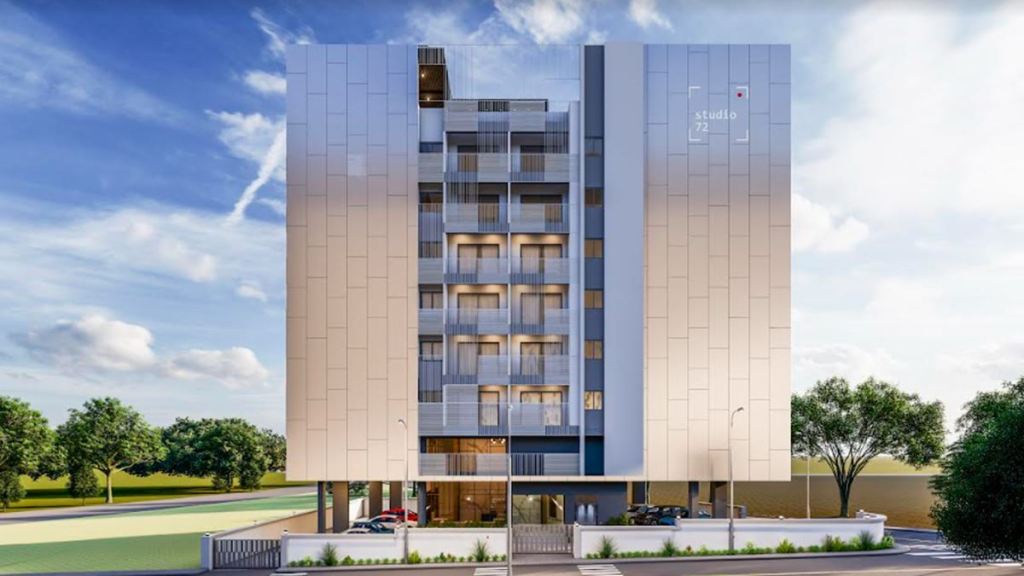Co-living spaces have regained their popularity after a setback during the pandemic, as more people, especially working professionals are seeking out safe, comfortable, and affordable living spaces. There are many individuals, including both students and professionals, who seek better living facilities than traditional options such as paying guest accommodations, hostels, and lodges. For such individuals, co-living has become an ideal solution.
There is no doubt that the major drivers of the co-living market in India are the rising number of young professionals who are looking for quality living spaces that cater to their specific needs. This is especially true for professionals working in hybrid models, where they may work from both home and office, and require flexible living arrangements that can accommodate their work requirements. Co-living spaces offer the opportunity to meet and interact with people from diverse backgrounds, which can provide a unique and enriching experience.
One of the significant benefits of co-living is the flexibility it provides. Individuals can rent a room on a monthly, quarterly, or yearly basis, and they have the freedom to extend or terminate their lease as per their convenience.
Also Read: Key income tax changes effective April 1: All you need to know
The co-living industry is growing at a rapid pace. As per an industry report, the market size expected to reach Rs 1 trillion by 2025. This growth has led to a surge in co-living spaces across the country, making it difficult for tenants to choose the right one. To help you make an informed decision, here are a few things to look at before selecting a co-living space.
Walk to work/college
The location of a co-living space is pivotal in determining its value. For students seeking accommodation, proximity to their college or institute is paramount, while working professionals should prioritize options near their offices or business districts. This will help you save both, time and money, as you won’t have to travel far to reach your workplace, college or other destinations. Moreover, a good location will also provide access to basic amenities such as hospitals, grocery stores, restaurants, and other recreational facilities. Therefore, before you choose a co-living space, consider the location and its convenience.
Amenities
The amenities offered by a co-living space are also important to consider. While some co-living spaces offer basic amenities like housekeeping, laundry services, and Wi-Fi, others offer additional facilities like swimming pools, recreational area, gymnasiums, and even gaming rooms. It is essential to evaluate your needs and choose a co-living space that provides amenities that suit your lifestyle. While more amenities may be attractive, they may come at a higher cost, so you should consider your budget before making a decision.
Security
Safety and security are essential factors to consider before choosing a co-living space. Look for a space that has 24/7 surveillance and security personnel. Additionally, ensure that the co-living space has a secure entry system that limits access to authorized personnel. The co-living space should also have proper fire safety measures in place, such as fire alarms and extinguishers. Safety should be a top priority when selecting a co-living space, so be sure to evaluate the safety features before making a decision.
Cost
The cost of a co-living space is one of the most crucial factors to consider. The cost of a co-living space varies depending on the location, amenities, and the type of co-living arrangement offered. Some co-living spaces may be more affordable than traditional apartments, while others may be more expensive due to their premium features and services. It’s important to carefully evaluate your budget and prioritize your needs when choosing a co-living space, so that you can find a space that offers the right balance of affordability and amenities for your lifestyle.
However, the supply of quality co-living spaces in India is still limited, and there is a significant demand-supply gap in the market. This presents an opportunity for professional co-living players who understand the needs of young professionals and are able to provide high-quality co-living spaces.
Terms and conditions
Once you identify a property that meets your requirements and fits your budget, it’s crucial to review the terms and conditions before making any token payments. Most co-living companies will require you to sign a lease agreement, a legally binding document that delineates the terms and conditions of your tenancy. As these agreements can vary between companies, they are not standardized. Therefore, take the necessary time to thoroughly read and comprehend every aspect of the agreement before affixing your signature. Pay careful attention to details such as lease duration, rent amounts, security deposit requirements, pet policies, maintenance responsibilities, and any other provisions pertinent to your rental. If there are any uncertainties, seek clarification, and don’t hesitate to negotiate terms that are both fair and reasonable.
(By Rishabh Soni, Co-founder, Union Living. Views are personal)

